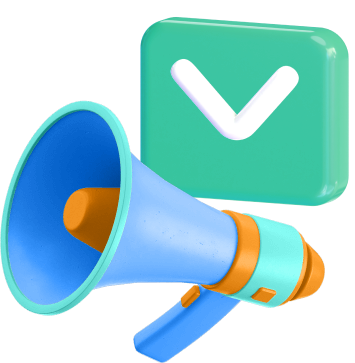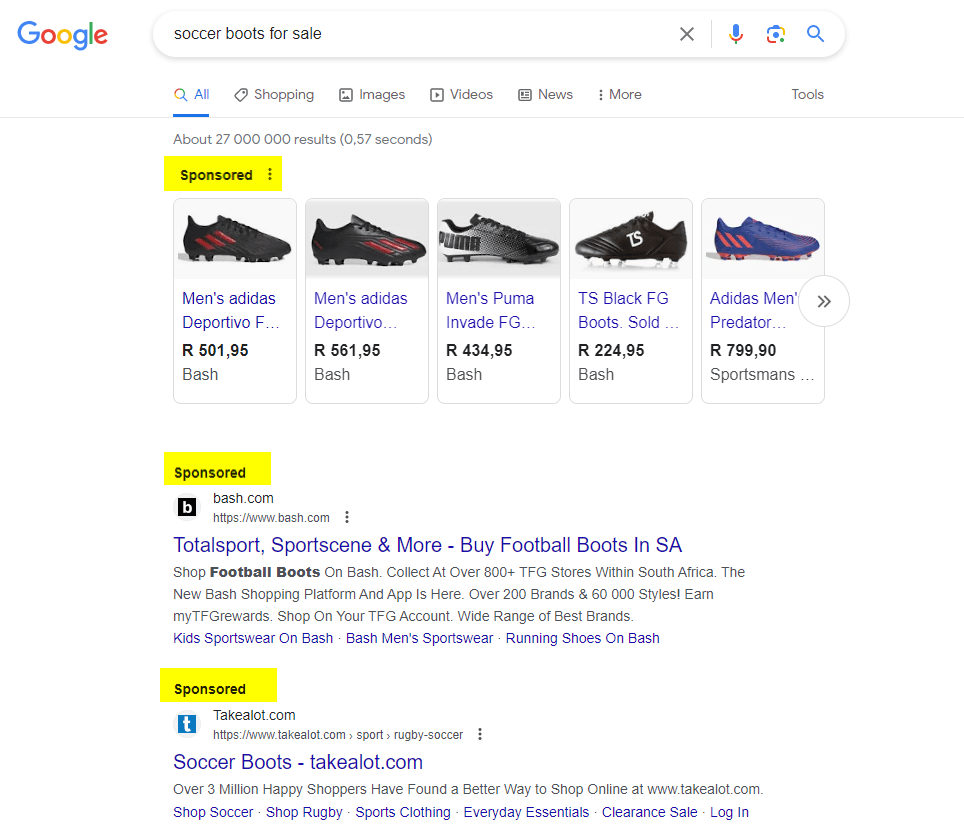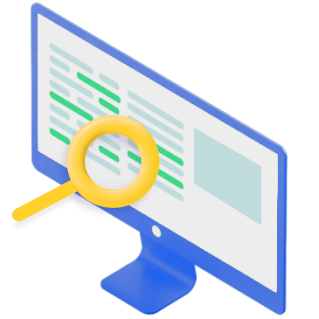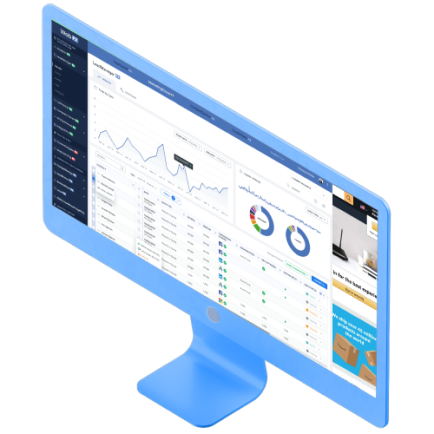-
 Published: Jun 1, 2023
Published: Jun 1, 2023
-
 8 min. read
8 min. read
-
 Sina Mchunu
Sina Mchunu Research & Tech Content Writer
Research & Tech Content Writer
- Sina is a marketing expert who specializes in SEO, AI, and digital marketing content. With over five years of experience, she’s written hundreds of pieces, spanning a variety of topics and industry niches. She loves combining her strong eye for detail and passion for storytelling in her work. You’ll find her fruit picking or horse riding at the local farm when she’s not writing.
Artificial intelligence (AI) is revolutionizing how we work, live, and interact with technology at a breakneck pace.
AI automates jobs that typically need human intellect by analyzing massive quantities of data and employing algorithms to seek patterns, predict outcomes, and take the appropriate action. When AI develops further, it may drastically alter many aspects of modern life, including commerce, health care, and transportation.
Let’s explore how AI works in digital marketing, sales, and customer service. We’ll review the fundamentals of AI and practical applications for using it to expand your company. Here’s a preview of the topics we’ll cover:
Let’s dive right in!
Don’t miss our Marketing Manager Insider emails!
Join 200,000 smart marketers and get the month’s hottest marketing news and insights delivered straight to your inbox!
Enter your email below:
Inline Subscription Form – CTA 72
“*” indicates required fields
(Don’t worry, we’ll never share your information!)

What is AI?
AI describes a system’s capacity to replicate human intelligence by learning and making choices similar to people’s. It involves using algorithms and machine learning approaches to allow robots to carry out activities that typically need human intellect.
How AI works in digital marketing
Over the past few years, interest has increased in the fascinating discussion of how AI works in digital marketing. In fact, the global market revenue forecast for AI in marketing in 2028 is $107 billion. The system effectively uses data and algorithms to evaluate and forecast client behavior.
By focusing on certain demographics, your business may improve the success of its marketing initiatives by delivering more relevant content. Now we’ll have a look at the most important applications of AI in digital marketing:
- Predictive analytics
- Customer segmentation
- Ad targeting and placement
- Automation
- Personalized content creation
1. Predictive analytics
Predictive analytics is a fundamental use of AI in digital marketing. AI helps us better understand customer behavior and preferences by evaluating data like purchase records, website visits, and social media posts. You can develop more pertinent and interesting marketing campaigns with the help of this data.
This application requires using algorithms and machine learning to massive data sets to make accurate forecasts. You can use predictive analytics to identify your most valuable customers and the marketing strategies most likely to generate sales.
Predictive analytics may also benefit your company in protecting itself from fraud and consumer defection. In short, AI-supported predictive analytics is a potent tool that may help you enhance your marketing tactics and increase client retention through data-driven decisions.
2. Customer segmentation
Customer segmentation is a crucial use of AI in digital marketing. This method categorizes customers into subsets defined by shared demographic and psychographic information. By segmenting their audiences in this way, marketers can better meet the demands of each subgroup and boost engagement and sales.
AI allows for more precise and timely client segmentation by analyzing massive data volumes to reveal trends that people would miss. With client segmentation, a clothing store may, for instance, focus on a subset of millennials who have already demonstrated an interest in eco-friendly styles. The store will be able to target these consumers with values-based marketing and product suggestions based on data gleaned by AI.
This strategy will help you market to and sell to that demographic more successfully. Ultimately, both the customers and the companies gain from these improved marketing initiatives, which are more targeted and efficient.
Bonus Read: Types of Market Segmentation
3. Ad targeting and placement
Search queries, clickstreams, and social media activity are just a few examples of the digital and analog imprints that AI may employ to learn about a user’s preferences and behaviors.
You’ll see an increase in the possibility that the target audience will take the desired action. That’s due to the usage of this data to send more relevant messages to individuals who are most likely to be interested in them.
Ad placement in AI-driven campaigns is just as crucial as targeting. Ad placement algorithms consider user activity and page content when deciding where to show an ad.

This may involve strategic placement on particular websites, social media channels, or even specific media like articles or videos.
You can strategically place your ads in front of the right people at the right times, increasing the likelihood of a positive response and a successful sale with AI.
Advantages and Disadvantages of AI in Marketing
4. Automation
AI automation streamlines and optimizes numerous marketing activities, such as email marketing, social media management, and PPC advertising, utilizing AI-powered tools and software. Your business can save time and money while increasing the overall efficacy of its marketing initiatives by automating these operations.
AI-powered technologies, for instance, can evaluate consumer information and behavior to produce customized email campaigns that are more likely to generate sales. Social media management technologies may help organizations measure key performance indicators (KPIs), monitor interactions, and schedule and post content across many channels.
Moreover, PPC advertising systems can automate ad placement, bidding, and keyword research to maximize campaign ROI. Automation is becoming increasingly important for contemporary marketing tactics since it enables organizations to function more efficiently.
Use our proprietary keyword research tool, KeywordsFX, to help you find high-quality keywords for content and PPC campaigns.
Identify Top Keywords for Free 

5. Personalized content creation
By automatically generating outlines for product descriptions, blog pieces, and social media posts, AI can streamline the content generation process, giving you more time and resources to concentrate on strategy and analysis.
However, don’t get the wrong idea. You don’t want AI to take over the content creation process completely. Your content should still be developed primarily by humans. But, AI content tools like ChatGPT can help with drafting some initial outlines.
To sum up, AI-driven assistance with content creation is a powerful asset for 21st-century marketers seeking to streamline operations and boost output.
Bonus Read: Should I use AI Copy for SEO?
How AI works in sales and customer service
AI in sales uses algorithms and machine learning to analyze customer data and behavior. The sales teams can therefore make better-educated judgments and customize their approach to each customer due to the ability to recognize trends and anticipate future behavior.
Additionally, AI can automate specific tasks, freeing up sales reps to focus on building relationships and closing deals. These may include:
Lead qualification and scoring
Sales teams may prioritize their prospects using AI-powered lead qualifying and scoring tools based on various factors, including demographics, online activity, and interaction history.
AI can quickly determine which prospects are most likely to convert by evaluating data from several sources, enabling your sales representatives to concentrate their efforts on those with the most potential for income. This increases the overall efficacy of the sales team while also saving time and resources.
The AI program begins by collecting information from various sources, including website statistics, social media engagements, and email exchanges. It then analyzes this data using algorithms to produce a lead score for each prospective consumer.

This score is determined by several variables, including the lead’s degree of involvement, the frequency and nature of their interactions with your business, and their demographic data. Moreover, the program may employ machine learning to enhance its lead scoring algorithms over time, making them more precise.
Sales pipeline optimization
Sales pipeline optimization entails employing AI algorithms to evaluate data on customer behavior, lead generation, and sales trends to discover opportunities for improvement in the sales process.
AI may assist sales teams in prioritizing leads, predicting which transactions are most likely to complete, and providing insights into how to engage prospects better.
Sales pipeline optimization can help companies improve customer experience by providing personalized recommendations and solutions. AI systems may evaluate client data to determine their preferences and pain spots, allowing sales teams to modify their approach and language better to match their requirements.
This may increase client satisfaction and loyalty and increase sales and income. Furthermore, AI-powered sales pipeline optimization may give real-time insights and suggestions, allowing sales teams to make better-educated decisions and adapt their strategy as required.
Follow-ups and communication
AI-powered technologies can automate sending reminders, follow-up emails, and even chatbots that can answer client questions. This not only saves sales professionals time but also makes sure that prospects are not overlooked or left out of the sales funnel.
AI-powered communication solutions can automate follow-ups and enhance all aspects of customer and sales team interaction. By analyzing client interactions, these technologies can offer suggestions for bettering messages and communication techniques.
Also, they may help you plan meetings and phone conversations, eliminating the back-and-forth emails and phone calls that frequently cause aggravation and result in missed chances.
A business may, for instance, utilize chatbots powered by AI to respond to client questions on its website, freeing up sales personnel to concentrate on following up with leads and completing transactions.
The chatbots might respond quickly to frequent inquiries and, if required, divert the discussion to a human agent. Analysis of customer interactions by communication technologies may also show trends in consumer behavior or messaging that can be used to improve sales tactics.
Meet MarketingCloudFX:
One platform tracking countless metrics and driving stellar results.
Learn More About Our Proprietary Software

Invest in revenue-driving AI with WebFX
At WebFX, we offer a range of AI solutions — including MarketingCloudFX and Nutshell CRM — that can help your business automate processes, optimize customer experiences, and boost revenue.
MarketingCloudFX uses AI to analyze customer behavior and deliver personalized marketing campaigns, while Nutshell streamlines sales processes by automating lead qualification and nurturing.
With our AI solutions, your business can achieve greater efficiency and profitability in today’s fast-paced digital landscape. Our AI specialists can collaborate with you to determine the most suitable options for your company and then assist in their smooth implementation.
Why wait?
Contact us online or call 888-601-5359 to speak with a strategist and take the first step towards revolutionizing your business with our AI marketing services.
-
 Sina is a marketing expert who specializes in SEO, AI, and digital marketing content. With over five years of experience, she’s written hundreds of pieces, spanning a variety of topics and industry niches. She loves combining her strong eye for detail and passion for storytelling in her work. You’ll find her fruit picking or horse riding at the local farm when she’s not writing.
Sina is a marketing expert who specializes in SEO, AI, and digital marketing content. With over five years of experience, she’s written hundreds of pieces, spanning a variety of topics and industry niches. She loves combining her strong eye for detail and passion for storytelling in her work. You’ll find her fruit picking or horse riding at the local farm when she’s not writing. -

WebFX is a full-service marketing agency with 1,100+ client reviews and a 4.9-star rating on Clutch! Find out how our expert team and revenue-accelerating tech can drive results for you! Learn more
Try our free Marketing Calculator
Craft a tailored online marketing strategy! Utilize our free Internet marketing calculator for a custom plan based on your location, reach, timeframe, and budget.
Plan Your Marketing Budget
Table of Contents
- What is AI?
- How AI Works in Digital Marketing
- 1. Predictive Analytics
- 2. Customer Segmentation
- 3. Ad Targeting and Placement
- 4. Automation
- 5. Personalized Content Creation
- How AI Works in Sales and Customer Service
- Lead Qualification and Scoring
- Sales Pipeline Optimization
- Follow-ups and Communication
- Invest in Revenue-driving AI with WebFX

Maximize Your Marketing ROI
Claim your free eBook packed with proven strategies to boost your marketing efforts.
Get the GuideTry our free Marketing Calculator
Craft a tailored online marketing strategy! Utilize our free Internet marketing calculator for a custom plan based on your location, reach, timeframe, and budget.
Plan Your Marketing Budget





